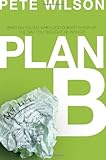 | The Heart Mender: A Story of Second Chances |
Ever read a book that you just kind of wish is true? That's my take on The Heart Mender by Andy Andrews. It's a charming story of love and forgiveness, and it's woven into the historical setting of World War II America. For the narrative alone, the book is worth the read, but the message it contains is well worth absorbing as well.
However, let's drop back a minute. This book was originally published under the title Island of Saints. I read Island of Saints and enjoyed it greatly. Now, Andrews has released it under a new title, with a few minor changes. All of this is explained in the Author's Note at the beginning, but should be noted for purchaser's sake. If you read Island of Saints, you're rereading when you read The Heart Mender. Now, go ahead and reread it. It will not hurt you one bit.
Overall, the story is well-paced. There are points where I'd like more detail, both in the history and the geography, but Andrews states his intention of shrouding actual identities, and it's hard to shroud someone's identity if you give precise directions to their home. So, for the purpose of providing setting, the story provides enough detail.
If you've read Andy Andrews before, you know he's not just this story for entertainment. Woven throughout the story are various lessons and messages. Most of these come back to the central theme of forgiveness, but there are other gems within.
One of the additional features of The Heart Mender over Island of Saints is a "Where are they now?" section. It closes out the work nicely. Also present is a study guide for contemplation or group discussion.
I would highly recommend this book.
Ack! Correction to original: Booksneeze book! Read Disclosures! Free book for review.
Beyond the Review: Here's one additional issue with this book. In the Author's Note, Andrews assures us that this is a true story, blurred enough to respect privacy. As evidence, there are photos that stated to have come from his own finds in his yard and general links to the broader history referenced in the book. There is no way for a third-party to verify or disprove the facts of the story.
Now, as far as I can tell, Andy Andrews is a man of integrity, and I'll take his word for it, but it's important to recognize that the message of the story will be ignored if he's shown to have been false. I've recently read another book that my wife reviewed that contained moving elements that were there to reinforce the author's point. He waited until the end to acknowledge that, while half the book was non-fiction, the other half was complete fiction. It destroyed his point, because he had used the fictional section as his illustration of how something was possible when it was, in fact, only his imagination.
So, to Andy Andrews and authors and publishers everywhere: don't fake it. I've read enough to know that life presents amazing and strange stories that are unbelievable but true. So I can see this as possible. I'll accept Andrews claim that he's heard more stories similar to this one, and would even believe these types of things happened in Southeast Arkansas (we had both a POW Camp and Japanese Internment Camps down here). But don't blow it: if you lie to your readers, especially to assure us something is true that you know isn't, you hurt both yourself and your message. Keep it straight. There's a line there, and you shouldn't even flirt with it.
Not an accusation to Mr. Andrews. As I stated: I believe him, and do not doubt his integrity, but it's a point worth mentioning multiple times: don't fake non-fiction.


